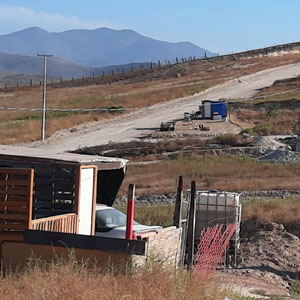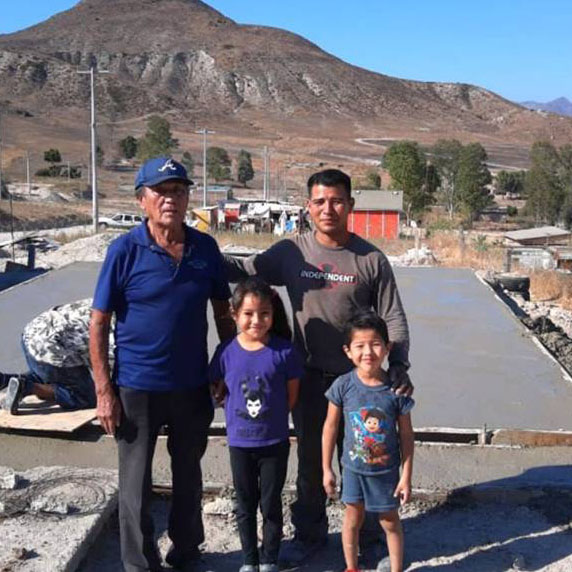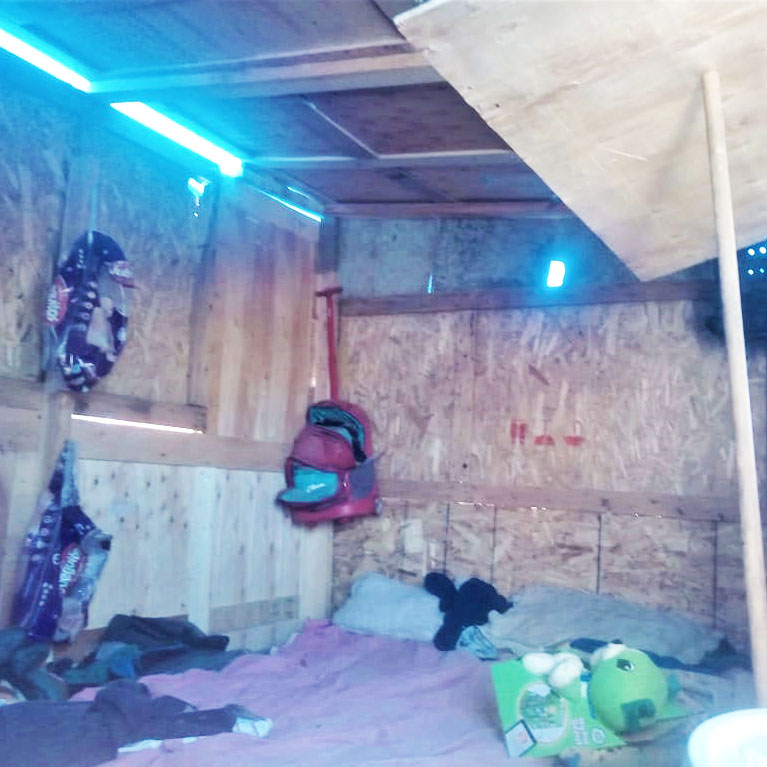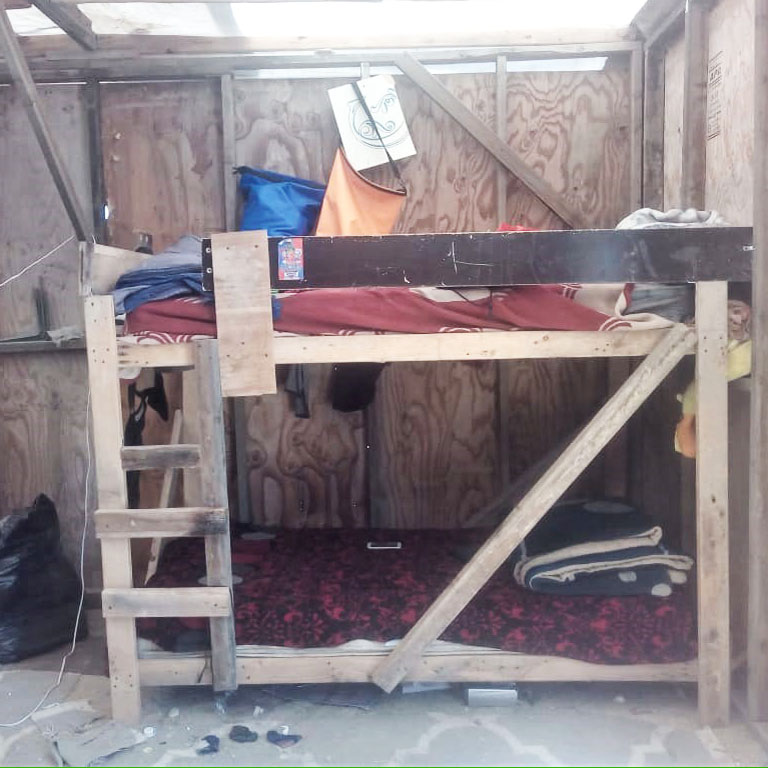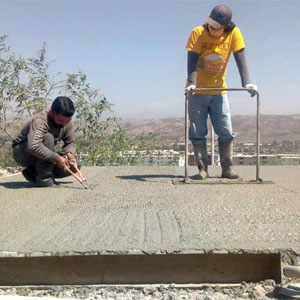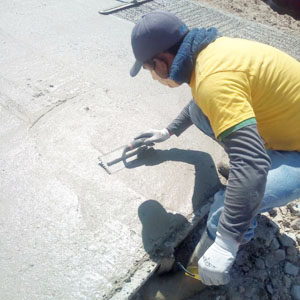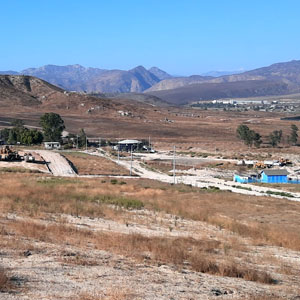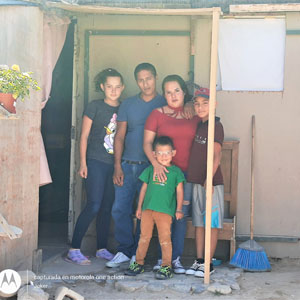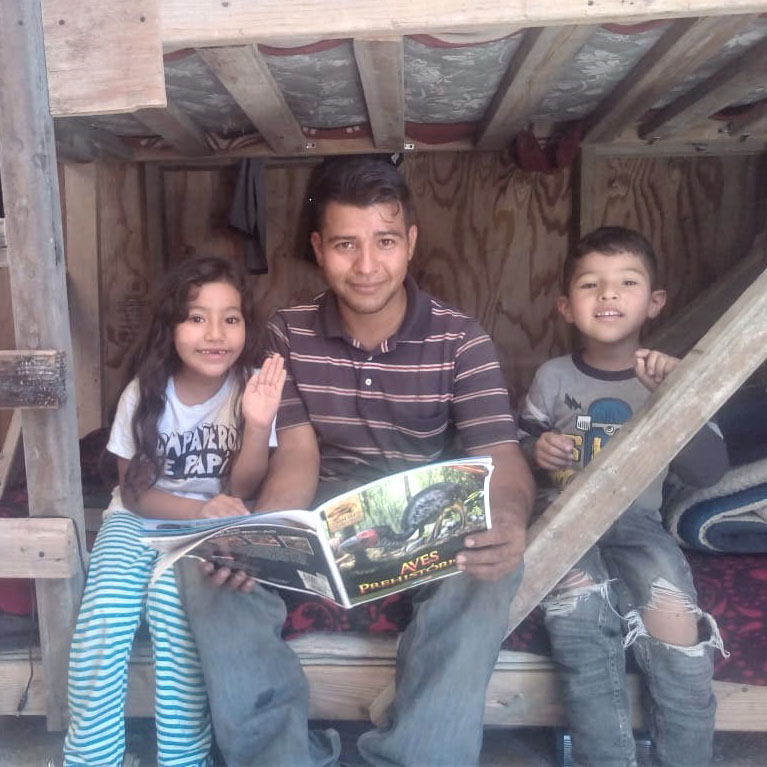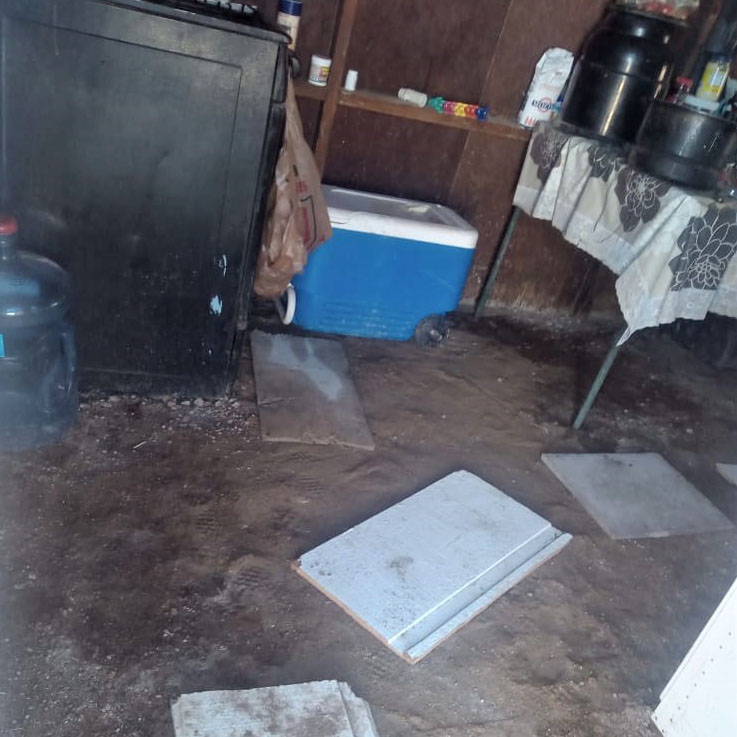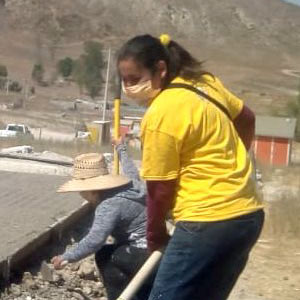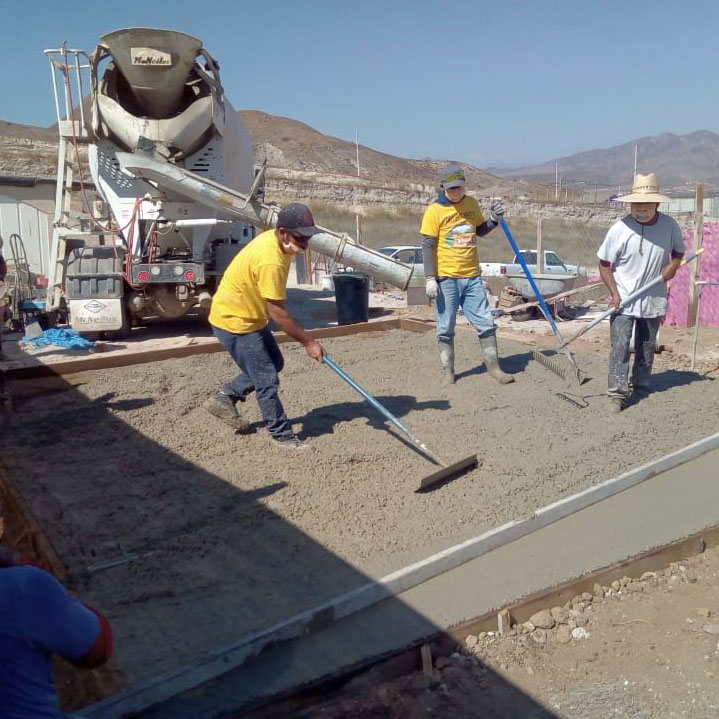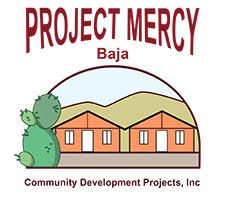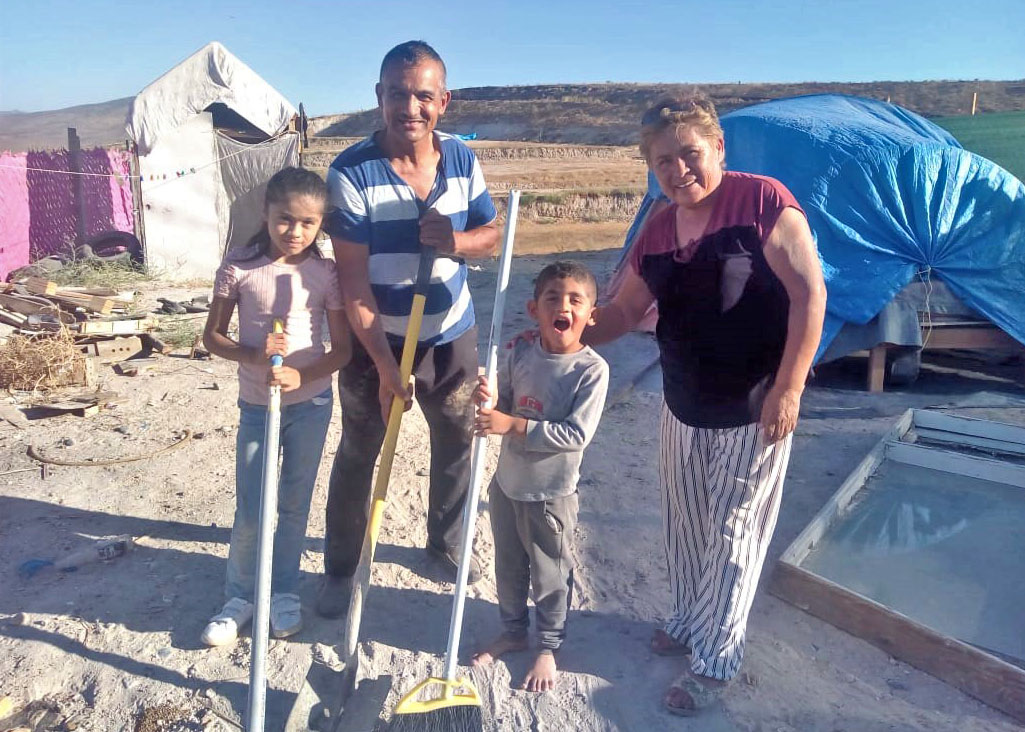We are starting afresh, families are hoping for a new beginning and Project Mercy and our friends and supporters in San Diego will change their lives.
Project Mercy began construction in Las Alondras the beginning of 2020, we managed to get four houses done before everything came to a halt. Now we are back and planning on building up the community from right here in San Diego through our special event House Build on October 24. Five groups will build housing components to ship down to Las Alondras, located halfway between Tijuana and Tecate, and they will be raised by our Mexican crew.
Las Alondras is a large government housing development in the far eastern region of Tijuana. Electrical poles can be seen in the photographs here, but right now there is no electrical power, nor water or sewers in the colonia. Water is purchased from pumper trucks at high cost, lights from cell phones are one of the few sources of illumination in the dark, and pits are dug in the hard dirt to serve as rudimentary toilets. The typical lot costs 280,000 pesos or US$14,000.00. Monthly payments average around 2600 pesos (US$130).
The government will eventually bring water, electricity, and sewers services into Las Alondras, but the residents have not been given any kind of timeline about when these services may become available. It may be years. COVID-19 and the additional expenses the pandemic has brought to the city, does not bode well for progress in the colonias.
Salaries run on average 1700 pesos per week (US$85), and sometimes there is only one breadwinner per family. As a result, land payments alone eat up a substantial portion of a family’s income. They are frequently left with little left over to pay for the basic costs of living, including school expenses for the children. Public transportation is far from the colonia and there are no stores, so getting to work and to grocery stores add to those expenses.
With the addition of problems developing from the coronavirus pandemic, such as loss of jobs, hours that have been cut back and the rising costs of food, families are subsisting in flimsy shacks without solid roofs. Living conditions are hazardous year round in these neighborhoods but now they need our help more than ever.
